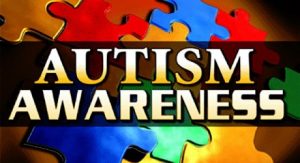What does it mean to have Autism Spectrum Disorder?
ASD is caused by a combination of genetic and environmental influences that result in a broad range of conditions connected by these underlying challenges:
Social skills/Communication skills (verbal/non-verbal)
- Little/no eye contact
- Failing to respond to others
- Echolalia, behavior where someone repeats words or phrases that they’ve heard from possibly television or another source
- Talk in an odd tone
- Unable to convey or understand body language
- Difficulties with back and forth conversations
- Responding unusually to other’s emotions like affection, nervousness, fear, pain
- Often monopolize a conversation by continuously talking about what they are interested in without concern for the other person’s thoughts in the conversation.
- May get very upset to little changes in routine
Repetitive and rigid behaviors
- Having intense interest in a certain topic, i.e. trains, video games, etc.
- Modifying behaviors or routines may be very difficult
There are plenty of misconceptions when it comes to ASD… Let’s de-bunk myths!!!
So what have we learned…
Fact or Fiction: Autism is a mental health disorder?
Fiction (although controversial): People argue for both sides, but advocates for autism and those with autism state that it is a neurological condition opposed to a psychiatric condition.
Fact or Fiction: Vaccines cause Autism…

By: agressti vanessa
Fiction: Although there has been much talk that vaccines cause Autism, there is no scientific evidence proving as such. The former physician that conducted a trial of 12 children and stated that Autism is caused by vaccines has since lost his medical license. Although there is no direct answer to the exact cause of ASD, it is believed that a combination of genetic and environmental factors contribute to the development ASD.
Fact or Fiction: People with ASD are unable to learn…

By: Alberto G.
Fiction: Autism may increase challenges to learning, but with patience and compensatory strategies, those with ASD are certainly able to learn. However, because ASD is a spectrum disorder and each person with ASD should be treated individually. Also, Autism has common comorbidities (i.e. cognitive disabilities), which may effect a person’s ability to learn.
Fact or Fiction: People with ASD are not able to empathize with others…

By: Sean MacEntee.
Fiction: Although Autism can alter the way a person displays emotion, it doesn’t mean that they can not empathize. On the contrary, sometimes they are over-responsive to empathy, which can result in an extreme reaction. Individuals with Autism have difficulties with expressing their emotions in a “typical” way. They may laugh when someone gets hurt or cry because a group of people are laughing very loudly. This is because they process their emotions differently and may have difficulties expressing them in the typical social manner.
Fact or Fiction: Everyone that has ASD will have a savant abilities.

By: Nayuki
Fiction: There is a small amount of individuals with Autism that excellent in certain areas and may possess savant qualities, but not all people with ASD possess savant qualities. There is also misconceptions that individuals with ASD may have low IQ’s. This is also Fiction! Approximately half of individuals diagnosed with Autism have an average to high IQ.
Fact or Fiction: Those with ASD are more at risk to be bullied…
Fact: A study of 1,167 children with ASD between the ages 6-15, showed that 63% of the had been bullied some time within their lives. Also, children with Autism may be instigated to escalate into outbursts purposefully by their peers.
Fact or Fiction: People was ASD are more likely to commit suicide…

By: ryan melaugh
Fact: Adults on the autism spectrum disorder are approximately 28% more likely to commit suicide than a typical adult. Children diagnosed with ASD have many supports throughout their childhood in schools, occupational therapy, speech therapy, counselors, special education teachers, etc., but often, when a child graduates from high school the supports are no longer available. Employment is difficult to come by and depression and isolation can ensue.
Autism is a complex disorder that affects everyone differently. Now that you have a better understanding, treat people with ASD with respect. Reach out and talk with someone with ASD. Although they may not seem different, you could make a big difference in their and your life!

By: AndYaDontStop
References:
Rettew, D. (2015, October, 8). Is autism a mental illness? Psychology Today. Retrieved from: https://www.psychologytoday.com/blog/abcs-child-psychiatry/201510/is-autism-mental-illness
Soraya, L. (2013, March 17). New research on autism and suicide. Psychology Today. Retrieved from: https://www.psychologytoday.com/blog/aspergers-diary/201303/new-research-autism-and-suicide
Autism Speaks. (2017). What is autism? Retrieved from: https://www.autismspeaks.org/what-autism
National Institute of Mental Health. (2016, October). Autism spectrum disorder. Retrieved from: https://www.nimh.nih.gov/health/topics/autism-spectrum-disorders-asd/index.shtml

